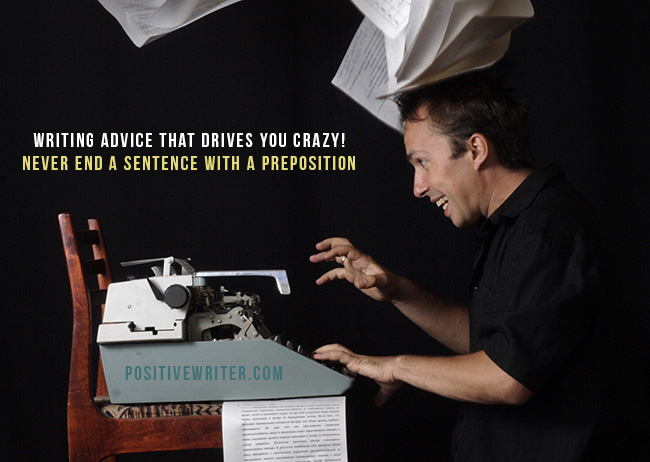Writers get well-meaning advice all the time. Whether you’re a poet, a novelist, a business writer, or the editor of the New York Times, there will always be people telling you how to do what you do, but this way. Their way.
Should you always listen? Good question…
Write What You Know
I don’t know about you, but I have lived a basically pleasant, average life. I believe everyone gets dealt their measure of unhappiness and discord, but I was never abducted by Somali pirates, I’ve never contracted a rare disease, traveled the world, had a whirlwind love affair with the son of a minor European royal, or even gone skydiving.
What if what you know is kind of boring? Does that mean you’re a pretentious try-hard for wanting to do more than that? Should you feel underqualified?
No. Writing what you don’t know means you’ll have to do some research, so be sure to put yourself in a teachable frame of mind. Get ready to learn. But, please, for the benefit of modern literature, feel free to write about that which you don’t know.
Only Pretentious Smartypants Use Semicolons
A variation of this advice is famously attributed to Kurt Vonnegut: “Here is a lesson in creative writing. First rule: Do not use semicolons. They are transvestite hermaphrodites representing absolutely nothing. All they do is show you’ve been to college.”
Kurt, I beg to differ.
First, you need not have been to college to understand how a semicolon works and second, sometimes, nothing else will do when you want to tie two corresponding-yet-complete thoughts together in a melodious way. The most common (non-listing) way to use a semicolon is to bind two independent clauses (word-blobs with complete subject-and-predicate structures) together.
Turn a deaf ear to any and all writing advice that tries to take tools out of your writing toolbox and tries to tell you that it’s for your own good.
Never End a Sentence with a Preposition
At one point, I was a holier-than-thou writing tutor, and I had one commandment. Never, ever, under any circumstances, end a sentence with a word like to, for, from, in or with. I would always make my students bury these words further down in earlier parts of the sentence, confident that I was properly apprenticing them in the art of wordsmithing.
Too bad I didn’t realize that the prepositions rule included other, longer words like between, beyond, upon, and about. I’m sure we can all think of beautiful, perfectly literary ways to use these words to end sentences, and more importantly, Grammar Girl says it’s okay, and so does Merriam-Webster.
Show, Don’t Tell
Before you crucify me, let me say that 99% of the time, “Show, don’t tell,” is a perfectly necessary piece of advice that all writers, particularly those new to the craft, need to heed religiously. Too much telling is almost invariably boring. New writers think that telling feels to the reader like the training montage from Rocky; actually, it usually feels like having to sit through a story that usually ends with, “Guess you had to be there.”
For experienced writers, nonfiction writers especially, acclaimed essayist Philip Lopate has a rebuttal to this advice. In his writing advice guide To Show and To Tell: The Craft of Literary Nonfiction, Lopate says, “The nonfiction student’s reluctance to provide summary and analysis shows the markings of that nefarious taboo of writing programs everywhere: “Show, don’t tell.”… We must rely on the subjective voice of the narrator to guide us, and if that voice never explains, summarizes or interprets… we are in big trouble.”
It’s fine to use telling as the connective tissue that binds your scenes together and provides crucial information.
You can waste half a page of context clues for the reader to guess Mama’s age, or you could tell us she’s 37. It’s up to you, and sometimes, it’s better not to waste the space. Conclusion? Tell—sometimes.
What’s your least favorite piece of writing advice? What do you do instead? Tell me about it in the comments!
This post was written by Positive Writer regular contributor Shanan Haislip.

